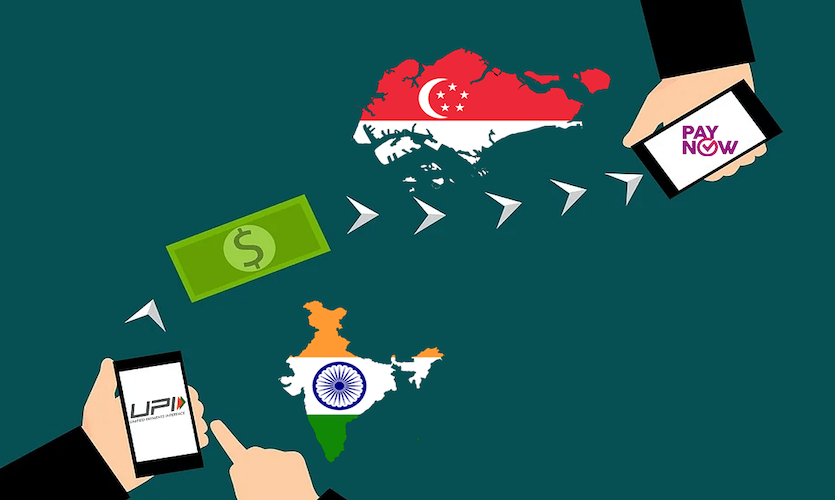Today marks the closing day for the hotly-anticipated initial public offering (IPO) subscription of Zomato that hit the market on July 14 and generated hype among investors.
The online food delivery startup started taking public orders on Wednesday for its $1.3 billion IPO, setting a new record for the biggest technology offering in India, according to data from Refinitiv, beating Tata Consultancy Services’ $1.17 billion IPO in 2004.
Zomato will become the first online delivery company and also the first Indian unicorn startup to get listed on the bourses.
It is expected that the IPO will boost Zomato’s market valuation to a whopping $9 billion. Zomato has fixed the price band of the primary market offering in the price band of ₹72-76 per share. The shares are likely to be listed on stock exchanges BSE and NSE on July 27.
At least 75 percent of the total public offering will be reserved for qualified institutional buyers, up to 10 percent for retail investors and the rest 15 percent for non-institutional investors. Around 65 lakh equity shares have been reserved for employees of the company.
The restaurant aggregator will use the IPO proceeds to fund organic and inorganic growth initiatives and for general corporate purposes.
Started by Deepinder Goyal in 2008 in New Delhi, Zomato is one of India’s most successful startups with more than 5,000 employees and a reach across more than 10,000 cities in two dozen countries. The company created a buzz in January 2020 when it bought UberEats in India with the California-based Uber picking up a nearly 10 percent stake in Zomato as part of the deal.
The IPO upsurge kicked off by Zomato is expected to pave the way for India’s IPO market to see an even bigger boom as a cluster of homegrown companies goes public.
The Process of IPOs
An IPO is a process under which a private company offers its shares to the public in order to raise money from investors. Before a company goes public, it is solely owned by a small group of founders, professional investors and angel investors. They use funds raised through public offerings for a wide range of activities like clearing debt, funding corporate expenses, expansion etc.
A company then requires approval from the market regulator Securities and Exchange Board of India (SEBI) to go public. Key details post-approval are released – the price band for the IPO, lot size, launch date and portioning of share sale for different kinds of investors like non-institutional investors, institutional investors, existing employees, Qualified Institutional Investors and anchor investors.
The company’s shares first start trading on the grey market which is the unofficial market for unlisted shares. Grey market stocks are not offered by the stock exchange and only traders are allowed to deal in them. Activity on this market can provide an idea about whether the stock will list on the bourses at a premium or a loss.
Within a timeframe of 2-3 days, investors get to subscribe to a company’s public offering after the IPO launch date. After the deadline, individuals have to check their allotment status on available channels – either the registrar or the BSE website. Following the completion of allotment, the shares of a company are listed on the stock market on a predetermined date.
Why the IPO Market Rush?
According to Bloomberg, despite the Indian economy being badly hit by COVID-19, data suggests that companies raised funds of $4.6 billion from IPOs last year. May 2021 saw a bullishness stem from the Indian markets with IPOs raising nearly $3 billion, which was the best start to the year since 2018.
A State Bank of India (SBI) report suggested that over 14.2 million new individual investors have participated in the stock markets in 2020-21. The high retail investor interest coupled with liquidity has created a perfect platform for companies to go public.
In the wake of losses encountered during the COVID-19 pandemic, for most tech and online delivery start-ups like Paytm, MobiKwik, Zomato and other firms, the key reason behind going public is to raise capital and expand the business as demand grows rapidly.
Over the next few years, analysts expect over 50 digital tech companies to be listed on the bourses.
SEBI has also introduced the “Innovators Growth Platform” to make it easy for Indian startups to list domestically. March 2021 saw the capital markets regulator approve the reduction in the period where eligible investors in a start-up prior to the public issue have to hold 25 percent of the pre-issue capital to one year from two years later.
The regulator also allowed start-ups to allocate up to 60 percent of the issue size on a discretionary basis, to eligible investors with a lock-in period of 30 days on such shares. Further, the open offer trigger has been raised from 25 percent to 49 percent in the event of a takeover of a company listed on the Innovator Growth Platform.
The Way Forward
India’s IPO market and the startup funding boom has received global attention. The investment of big players like Blackrock Inc. and Fidelity International Ltd. were among the dozens of anchor investors that piled into Zomato. The company received about 35 times more bids than it had expected to sell.
Indian digital payments startup Paytm has filed for an initial public offering (IPO) of up to $2.23 billion, draft papers submitted to SEBI showed on Friday. Paytm is also backed by big investors including SoftBank Group Corp. and Berkshire Hathaway Inc. Both Zomato and Paytm have been backed by China’s Ant Group.
Other upcoming IPOs include Flipkart, Ola, Nyka, MobiKwik, Bajaj Energy, Chemplast Sanmar, Sami Hotels, Arohan Financial Services, Glenmark Life Sciences, Utkarsh Small Finance Bank, Puranik Builders and Shriram Properties.
The Centre has also been pushing for major disinvestment of PSUs (public sector undertakings) with the hope that the proceeds of big-ticket disinvestment will bankroll the next phase of economic recovery. Nirmala Sitharaman’s 2021-22 budget reiterates this commitment. The Centre has targeted ₹1.75 lakh crore in revenue from disinvestment, privatisation and asset monetisation.
The startups and private companies aren’t the only ones who have hopped on the IPO train. The Cabinet approved an IPO of India’s largest insurer LIC. The modalities of which such as issue size, pricing and timing would be decided by a panel headed by Nirmala Sitharaman, The government aims to further add more listing and complete the strategic sale of Bharat Petroleum Corporation Ltd (BPCL), Shipping Corp, Container Corporation, Neelachal Ispat Nigam Ltd, Pawan Hans and Air India, among others, by March 2022.









